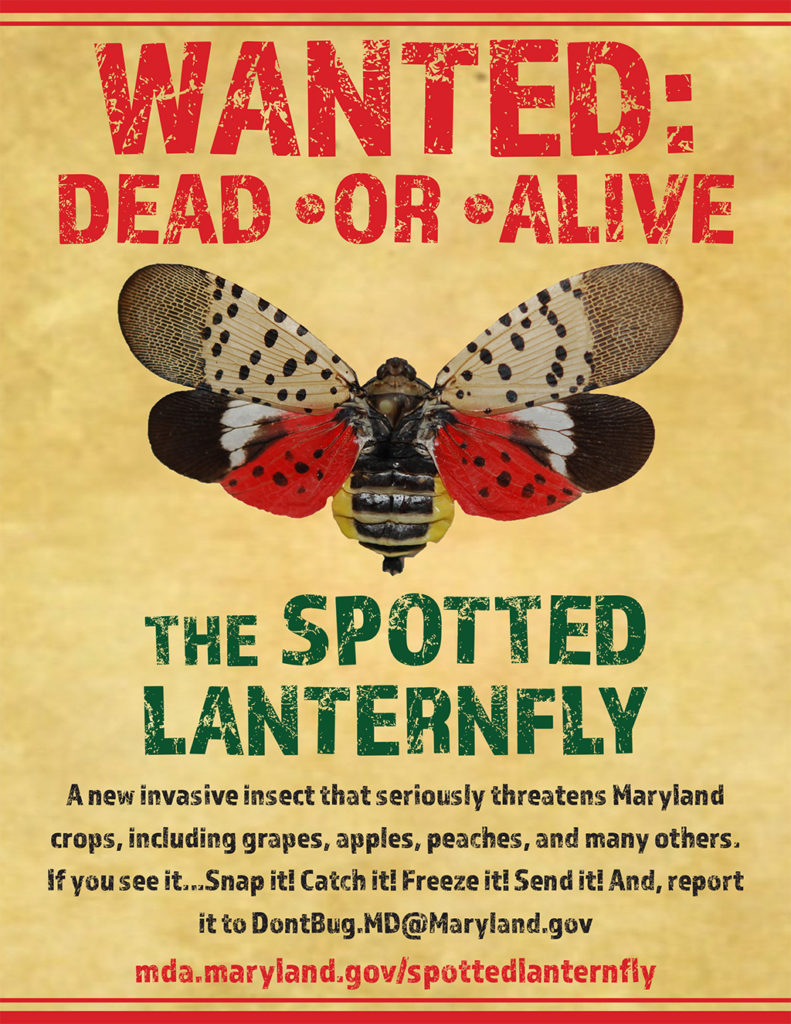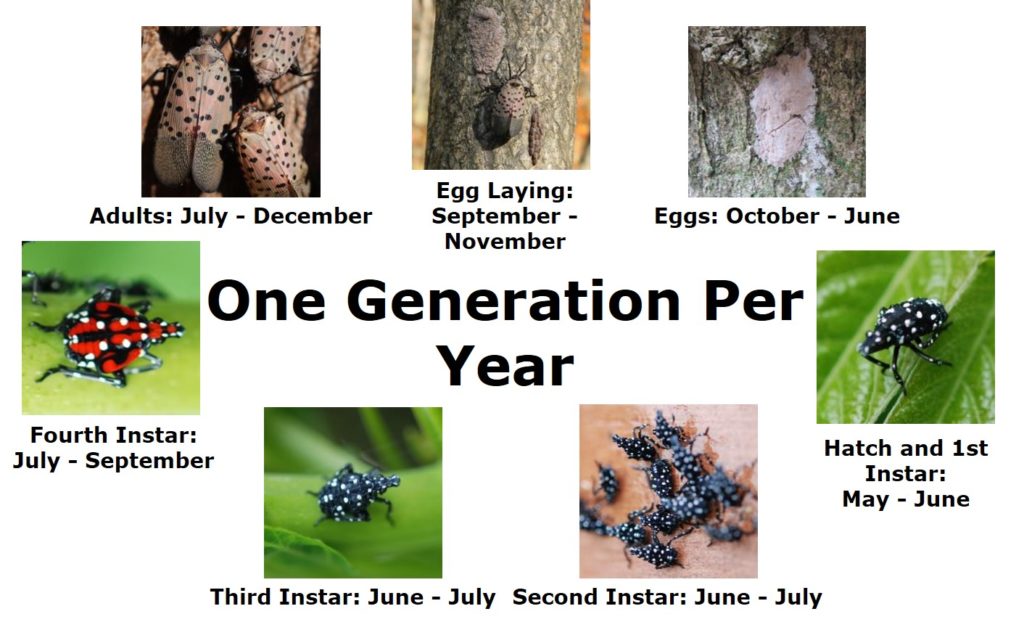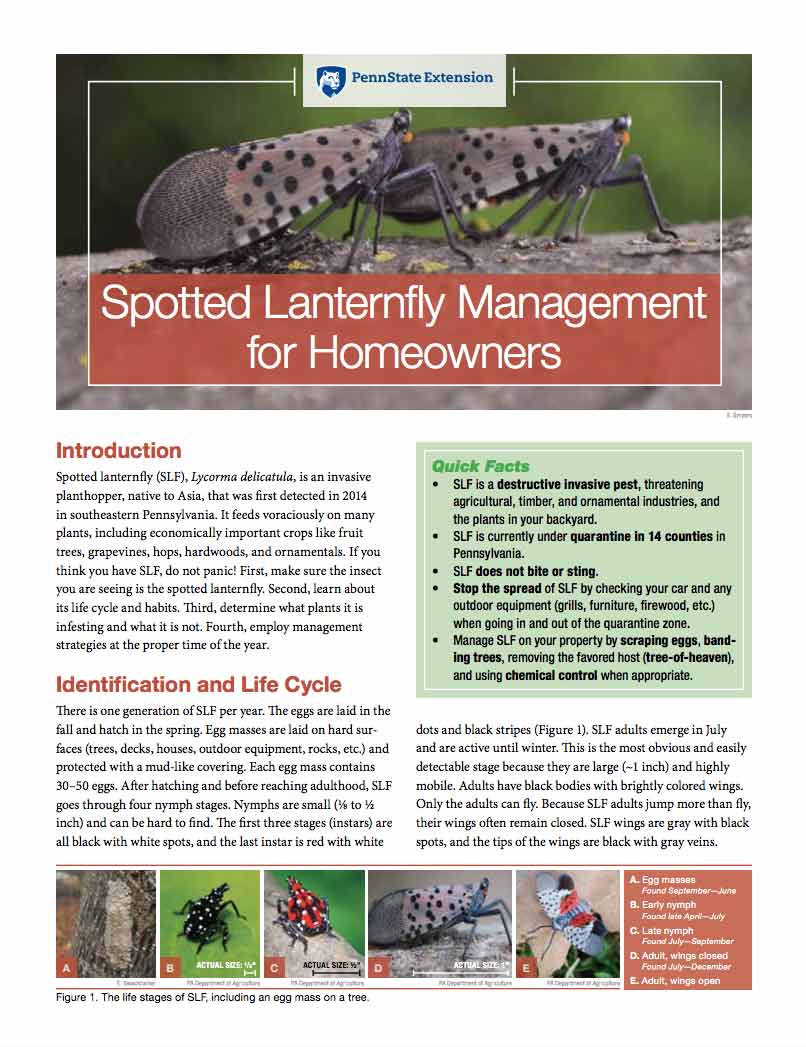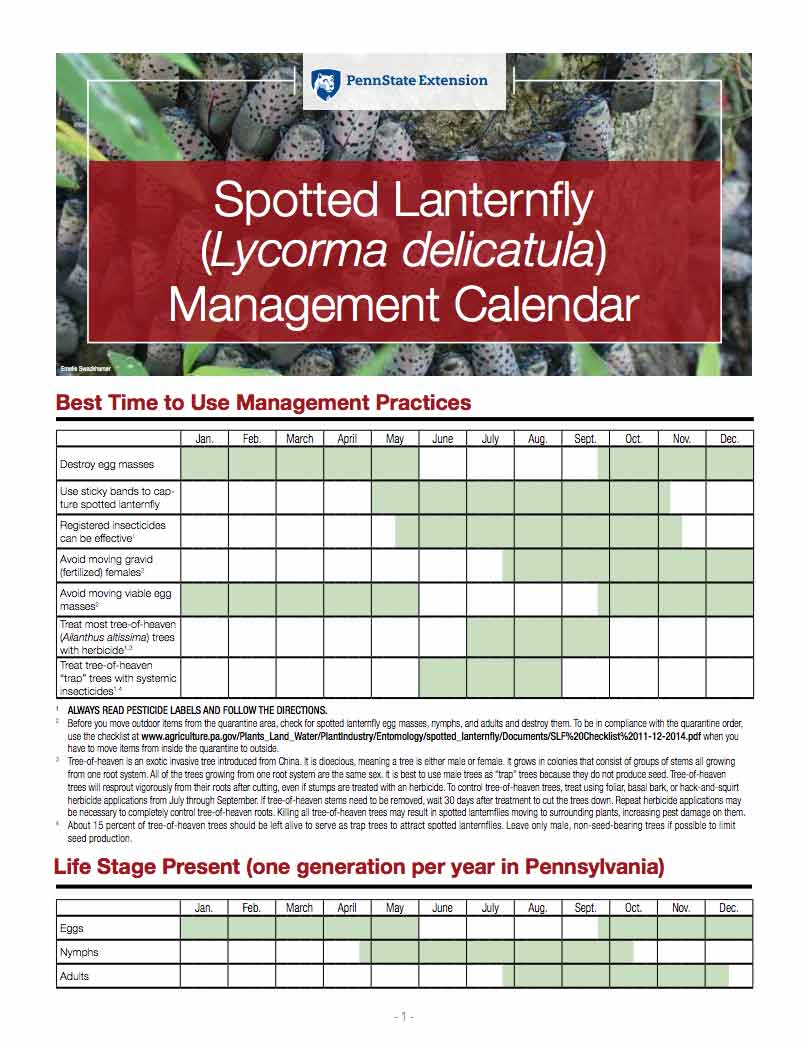
Upper Shore Regional Council partnered with the Cecil Extension Office and the Cecil County Office of Economic Development and hosted a Spotted Lanternfly Lunch & Learn at Cecil College on June 5, 2019.
The spotted lanternfly (Lycorma delicatula) is an invasive pest that presents a significant threat to our Eastern Shore agriculture, including the grape, tree-fruit, hardwood and nursery industries, which collectively are worth billions to the Maryland economy.
First detected in Pennsylvania in 2014, it has since been found to have confirmed populations in Delaware, New Jersey and Virginia, all surrounding the state of Maryland. Several counties in each of the surrounding states have been quarantined. It is important to remain vigilant in order to prevent its spread and establishment into our state.
Identify a Spotted Lanternfly:
The spotted lanternfly has several stages prior to becoming an adult, please study the stages (shown on the graphic) and help stop the spread of this invasive pest. Note that the egg masses are particularly difficult to see and can be found on tree trunks, cement blocks, rocks and any hard surface. Its preferred host is tree-of-heaven (Ailanthus altissima). The eggs should be scraped off of its host using a plastic card or putty knife and placed in a container filled with rubbing alcohol or hand sanitizer. Egg masses can also be smashed or burned. Just scraping the eggs off of it’s host is not enough to kill the eggs!
Fact Sheets
The below fact sheets were produced by Penn State Extension in collaboration with the Pennsylvania Department of Agriculture and the United States Department of Agriculture, and prepared by Heather Leach, spotted lanternfly extension associate; David Biddinger, tree fruit research entomologist and research professor; and Greg Krawczyk, extension tree fruit entomologist and research professor.
How can you help?
If you observe any egg masses or spotted lantern flies please try to collect and or kill them, and inform the Maryland Department of Agriculture at (410) 841-5920 or DontBug.MD@maryland.gov as soon as possible.






